As a fresh start for their Oak Island journey, the Lagina brothers integrated the modern technology earlier explorers hadn’t had access to. Rick and Marty were more than determined to get to work and investigate the island further. With the help of state-of-the-art technology, the brothers were able to search not just the fabled Money Pit, but also other unexplored parts of the island.

The flooding of the pit was no longer an obstacle as the lads had the technological means to create efficient solutions. To their surprise, their efforts revealed secrets and allies that were far from their expectations.
The Lagina Brothers
Despite the number of lives sacrificed on the island while braving the tumultuous journey of unearthing its bounty, many skilled and talented explorers are still inspired to risk it.
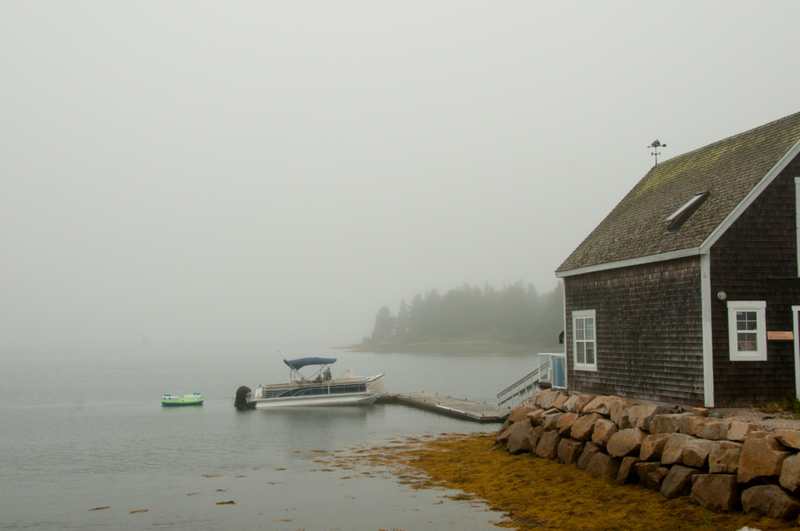
The Lagina brothers have never been bothered by the horrific rumors. In fact, their interest in the island’s hidden treasure just keeps getting deeper. Find out what keeps them obsessed with cracking this ancient mystery. Just how close are the Lagina brothers to cracking the case? Read on to discover the mystery for yourself.
Obsession at a Young Age
Little did an 11-year-old Rick Lagina know that by merely flicking through a copy of Reader’s Digest in 1965, his life would completely change.

The article that struck him was about the legend of a treasure being buried on an island in the wilds of Canada. He and his brother Marty got even more fascinated when their father showed them an article about Oak Island in The Wall Street Journal.
Rick's Calling
Between the two brothers, Rick was more captivated to further investigate the buried treasure, especially when he learned that many people had tried their luck and yet failed to find it. Some of us are just more adventurous and curious by nature and such was young Rick.
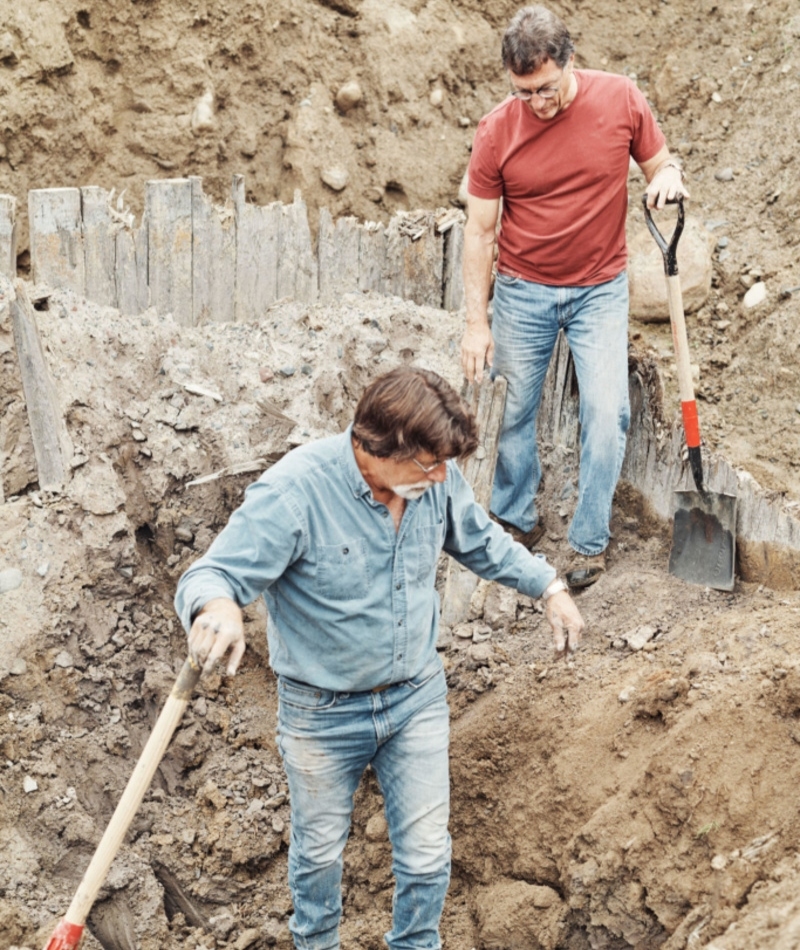
He may have been youthful at the time, but he knew he had a big mission calling his name and he wasn't going to back down or give up.
Natural-Born Explorer
Rick Lagina’s fascination with the Oak Island treasure is not a surprise, as the young boy was already a natural explorer. He had already engaged in a treasure hunt back in 1964, in his hometown of Kingsford.
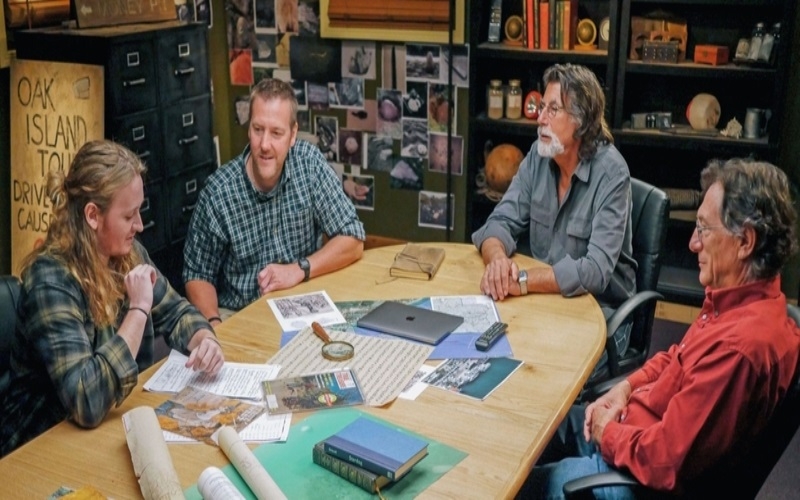
In this exploration, he was thrilled to have seen a huge granite rock. As a young boy, his curiosity led him to check what was underneath, so he sought the assistance of his brother, Marty, and a crew of other kids their age in their neighborhood to move the rock. What was hiding behind it?
The Rock Was Just the Begining
To Rick's and his friend's dismay, not a trace of any valuable items was found underneath the big rock. They did find a pile of dirt under the rock, but that's to be expected right? Still, curious souls never quit, and one minor setback wasn't enough to stop Rick.

Rick knew there was something more out there in the world, just waiting for him to be the person to discover it.
A Strange Revelation
In 1796, another young boy discovered a strange depression on the ground of Oak Island. Eight years later, the Onslow Company launched a team to search the area. Why it took them so long to start the search, we will never know, still, better late than never.

After locating the strange markings, the explorers dug deep until they hit something solid. They found a buried stone tablet with an odd inscription.
The Inscription
After finding the stone with the inscription, there was only one thing left to do, try and decipher what was on it, of course! Experts set to work, attempting to interpret and understand the transcription. There was just one problem, they just couldn't. They most likely just didn't have the tools and knowledge to do so.
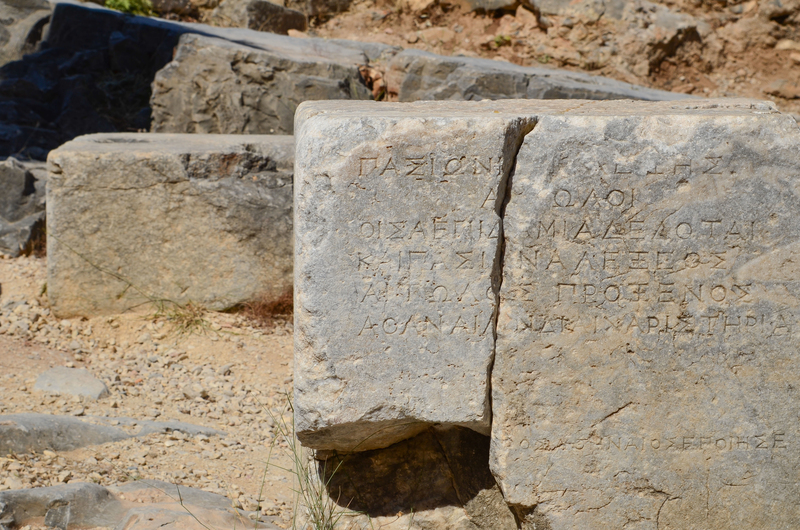
It wouldn't be until almost 100 years later, 90, to be exact, that the transcription would finally be translated.
The Tablet’s Curse
It was only in 1886 that the shocking message that was engraved on the stone was decoded. It was all thanks to a professor from Halifax. It read, “forty feet below, two million pounds lie buried.” No one had a clue what was meant by “pounds,” but you do have to admit that it sounds ominous.
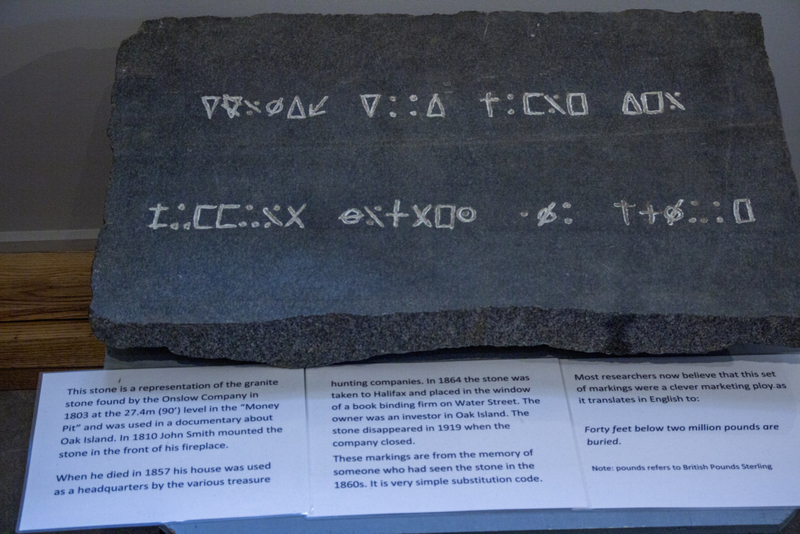
Or maybe it wasn't? Maybe this meant that there was a treasure lying beneath, just waiting to be discovered?
Was the Treasure Shakespeare's?
But wait, let's talk about the treasure's origins first. Plenty of theories have surfaced. Some people, oddly, traced the source of the treasure back to William Shakespeare. Many of those who doubt the bard was real, believe his literary works were actually written by Francis Bacon. So some treasure hunters hypothesized that Bacon may have built a pit to bury his manuscripts and his earnings.

While this theory is attractive, today it is already widely believed that Shakespeare was, well, himself and not Francis Bacon or anyone else for that matter.
Marie Antoinette's Island
Another theory suggests that the hidden treasure of Oak Island actually belongs to one infamous royal lady - Marie Antoinette. The story goes that Marie sent her maid all the way to Nova Scotia in order to hide her wealth and her jewelry on the island. Rumor has it that even the French Navy was involved in the oppression but it was never confirmed.

One fact that supports this theory though, is that when Marie was arrested at Varennes, there were no pieces of jewelry or gold on her.
Pirates Of Oak Island
The list of theories goes on and on and some entries even involve the participation of pirates and sailors. Captain Kidd was theorized to have buried some of his treasure on Oak Island.

Meanwhile, others believe that when Captain Blackbeard claimed he hid something “where none but Satan and myself can find it, " he actually admitted to stashing something on the island.
More Than One Theory Can Be True
There was also a theory that suggested that Spanish sailors had hidden their treasure in a secret location on the island. While these ideas may be intriguing, there is no proof to support any of them. Still, when you think about it, there's also a possibility that more than one of these stories is true, maybe Shakspear's manuscripts lie next to Antoinette's Jewelry, which is just a few miles away from Blackbeard's hidden treasure.

However, the next theory we’re about to reveal to you is by far the most engaging.
A Sacred Treasure
One of the most intriguing theories about the Oak Island treasure relates to the alleged Masonic markings that can be found all throughout the island. The markings found seem to correspond with a masonic ritual.

Is there a chance such a ritual took place on the island? Could it be that the Free Masons have anything to do with the island, and could they have hidden a treasure there as well?
Blast From the Past
Now let's get back to 1796 when an intriguing discovery happened. Let us refresh your memory - a young boy named Daniel McGinnis was wandering around Oak Island when he saw a strange circular depression in the earth. He moved closer and noticed a tree with branches cut away.
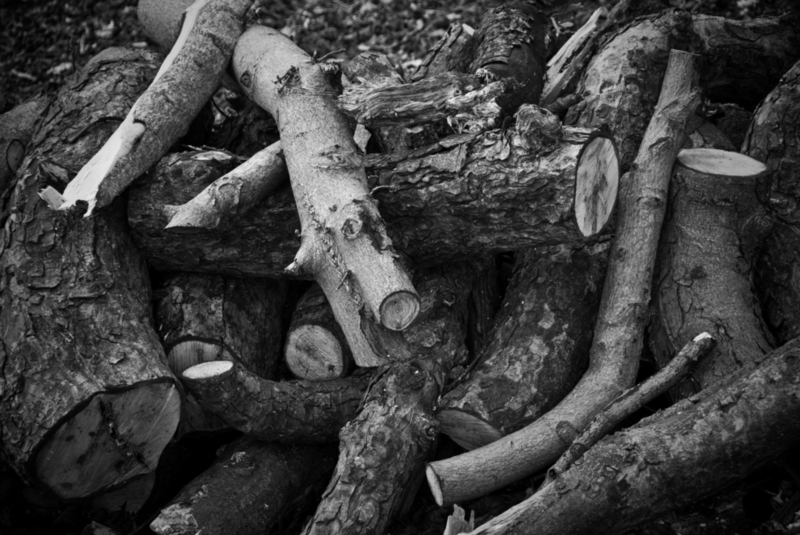
He thought that the branches were intentionally removed so that the tree could serve a purpose: to act as a pulley. When he remembered all the pirate and treasure chest stories he’d heard over the years, the boy talked to his friends and asked for their help to investigate further.
Starting to Investigate
Determined to know more details, Daniel McGinnis sought the help of his friends, John Smith and Anthony Vaughn, to uncover whatever might be hidden under the tree. With all their might and interest, the young boys started digging, and after reaching two feet down, they hit flagstone.

But if you thought that this would be enough to stop them, you'd be wrong. This only sparked their curiosity even more.
Further Investigation
The youngsters decided to remove the flagstone and keep digging, making it about another 30 feet down finding layers over layers of oak logs. You have to praise them for their determination, could you ever see yourself just digging for hours in the ground?
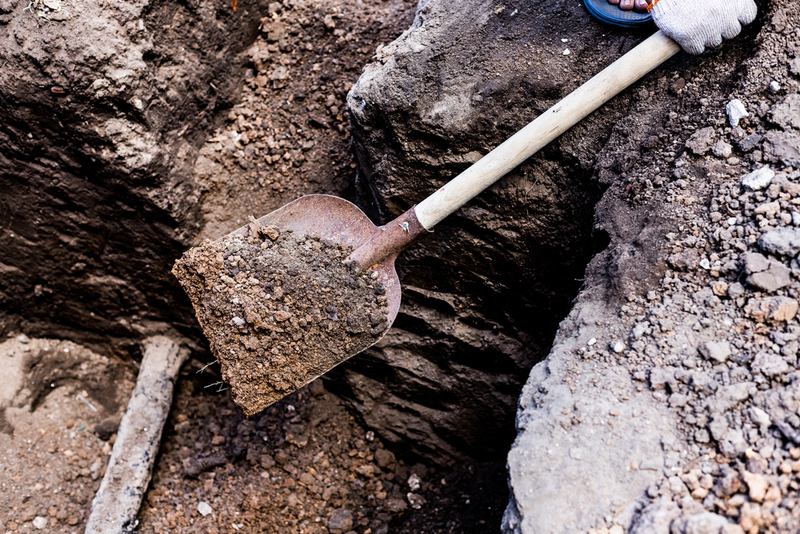
Eventually, they realized they couldn’t go any further and thought to themselves that they’d have to wait years before they’d have the ability to pursue their mission. However, this was just the start of their great adventure...
Digging Deeper
Almost a decade later, the Onslow Company arrived and dug in the same part as the three boys had in the past. With their equipment, they were able to delve down further, and after reaching 60 feet, they saw more oak logs, this time with coconut fiber and charcoal in thick layers.

Interested to find out what lay beneath, the team kept digging until they came across the stone tablet.
A Flooded Pit?
Thrilled with the discovery and imagining the rich fruits of their labor were about to be uncovered, they pulled out another layer of oak logs. All of a sudden, water started flooding into the pit. Could this mean that all of their work was for nothing?
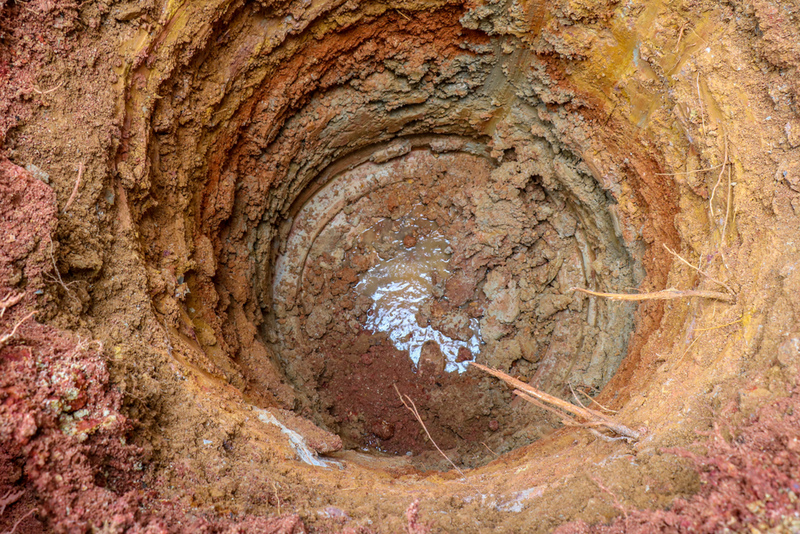
Could this be just another decoy, meant to distract them from finding gold? The only way they could stop the flooding was to make a tunnel to let the water out.
Hitting Rock Bottom
Nothing they tried worked and the non-stop pouring of water made their mission impossible to carry out. The Onslow company realized that they could not push their search any further.

The pit was designed with a 500-foot waterway that connects to Smith’s Cove. This means water can get in freely from the sea, and any time there’s an attempt to empty it, it quickly fills up again from the endless oceanic supply.
A 45-Year Delay
This conundrum had a massive impact on the discovery of the mysterious treasure. Trying to figure out a way around it caused a delay of almost half a century in the exploration. However, even such seemingly insurmountable obstacles cannot deter explorers.

Unfazed by the challenges of the Oak Island treasure, in 1849, a new team of explorers called The Truro Company, set foot on the island. They found an efficient way to drill samples of the pit without the water being an issue.
A New Group of Explorers
After putting in the work, day in and day out, their lucky break finally came: as they were drilling, they hit the jackpot. Tada! They successfully drilled through two chests filled with coins.

They thought this was the first sign of the massive hidden treasure that was promised by the stone. There was a claim that three gold links from a chain were also discovered, but these gold links went missing and no one had an inkling of what actually happened.
A Deeper Pit
The Truro Company realized that the so-called “Money Pit” was deeper. As such, they had to keep draining the water over and over. However, as they repeated the process, they noticed something strange was happening: the level of the water in the pit was moving with the tides.

This realization led to the discovery that the entire beach was artificial; a complex construction with drains and flow tunnels beneath it. Surely this kind of effort would only be undertaken to protect a pretty hefty treasure, right?
The Storm That Ruined Everything
The Truro Company thought of creating a dam to obstruct the flow of water and dig out the treasure. However, they discovered that somebody had already attempted this when they came across an older dam. Then a storm came.

The storm created an unusually high tide which destroyed all their hard work. At this point, they were in way too deep, and the endeavor drained their pockets. Lacking the funds to rebuild, they had to give up.
The First Loss
In 1861, the Oak Island Association tried their luck at cracking the case. They poured their hearts and time into reaching an 88-foot depth in the Money Pit. They made a new shaft to stop the water from entering.

Unfortunately, the team had a devastating tragedy when the entire bottom part of the pit fell. When the pump burst, one of their members was killed. Rumors started circulating, saying that ghost pirates were acting as guards of the hidden treasure.
A Strange, Sheepskin Artifact
As the 18th century was about to come to an end, another team of explorers decided to risk their lives to try and find gold and glory. As they were in the process of investigating the mysteries that covered the Money Pit and Oak Island, they discovered a sheepskin parchment with letters printed on it, a scary artifact in itself.
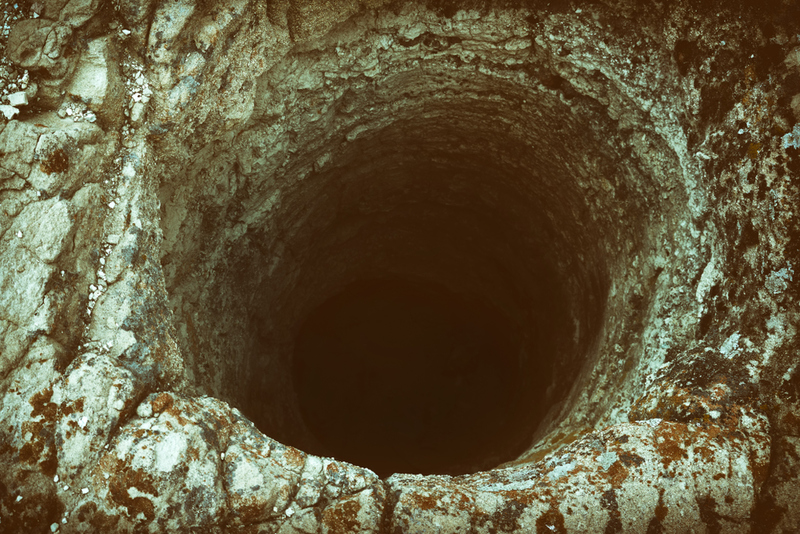
But, even more, disturbing and frustrating was the fact they could not understand what it said.
Yet Another Tragedy
Still, even without knowing what the parchment meant, they still wanted to continue digging. Just as they were getting close to their mission, Maynard Kaiser, one of the team’s explorers, met his tragic death.
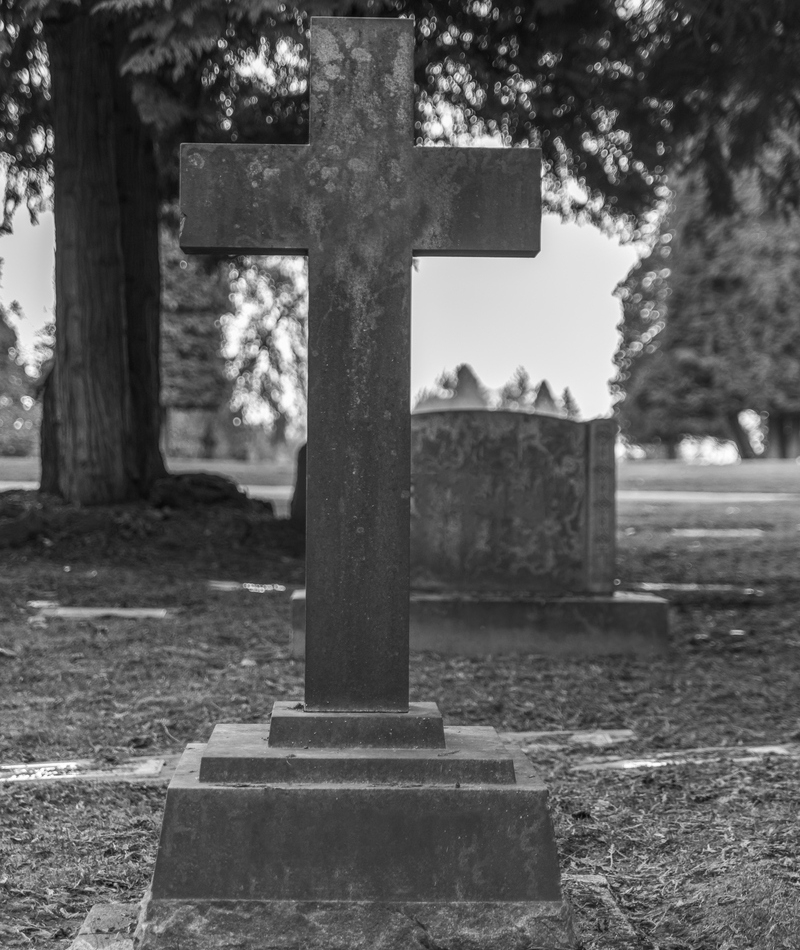
It all happened when they tried to lift him back to the surface. As he was being hoisted up, his rope untangled from the pulley and, tragically, Maynard fell to his death down the shaft. Was this just an accident? Or maybe a part of some island curse?
President Roosevelt's Involvement
At some point, even the late President Franklin Delano Roosevelt got himself involved in the mysteries of Oak Island. Stirred by his family’s sailing stories, he continued following the island’s treasure mystery until his death, in 1945.

Roosevelt was a member of The Old Savage Group. Even though the crew of explorers didn’t make much progress on their hunt for the island’s treasure, he continued to monitor the Oak Island attempts and developments. In 1939, he planned to secretly visit the island but it didn’t materialize due to weather and certain international issues.
A Businessman's Attempt
In 1928, a New York businessman, Gilbert Hedden, got captivated by the strangeness of the mystery following the island after reading an article about it. As an operator of a steel fabricating firm, he was curious about the engineering issues that the previous explorers encountered.

Determined to apply his engineering skills and, of course, try his luck in finding the controversial treasure, he arrived on the island with his business partner, Fred Blair. They drilled some of the shafts and discovered something more intriguing than had ever been found before. Could this pair be the key to solving the mystery?
More Discoveries
Gilbert Hedden and Fred Blair’s decision to take on Oak Island did not disappoint them, as they became the first witnesses to the island’s newest revelations. What the pair discovered was a stone with markings almost the same as the one that was discovered in 1804 in the Money Pit. Later on, they found some old timber at Smith’s Cove that appeared to be the exact material that was used when the pit was initially built.
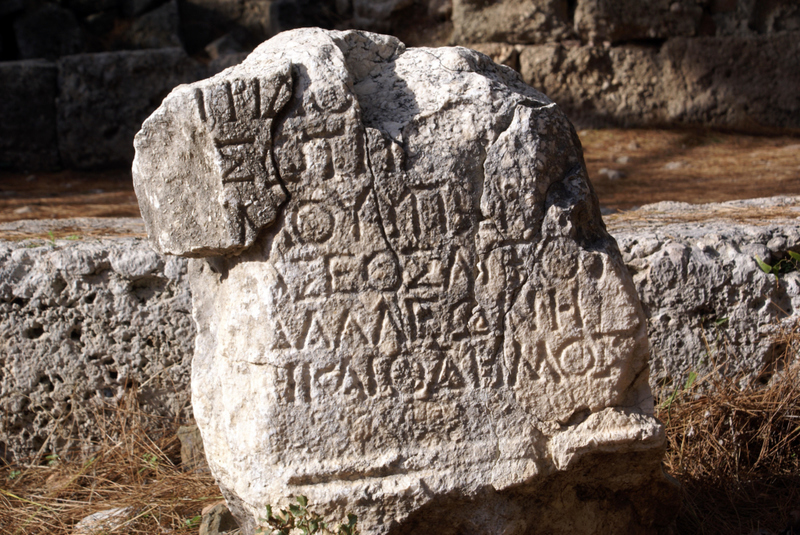
What the pair discovered was a stone with markings almost the same as the one that was discovered in 1804 in the Money Pit. Later on, they found some old timber at Smith’s Cove that appeared to be the exact material that was used when the pit was initially built.
An Odd Layer
Another treasure-hunting hopeful was Erwin Hamilton who arrived on the island in 1938. When he started drilling in 1939, he came across two interesting discoveries. About 190 feet down the Money Pit, he found some intriguing rocks and gravel. Upon checking them, Hamilton realized that they were foreign and that they had been placed there intentionally.
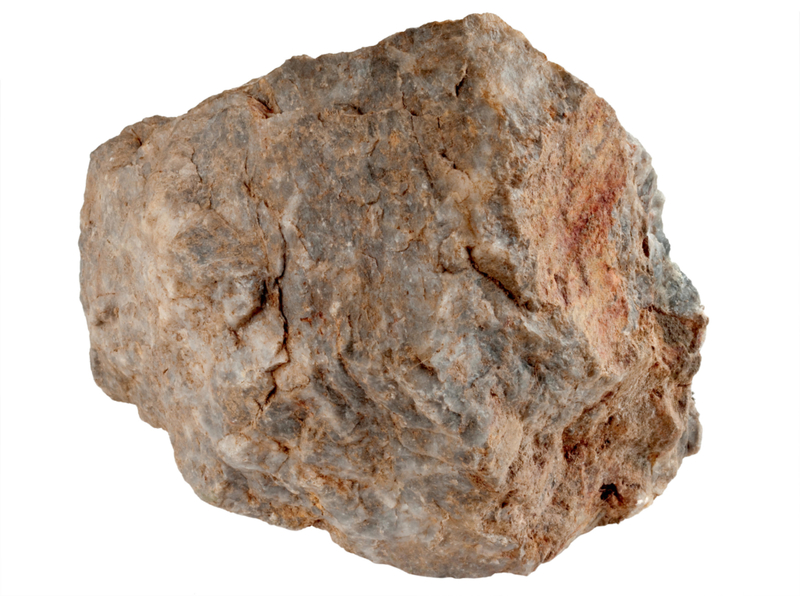
His next discovery was an odd layer of natural limestone that contained some oak splinters. As such, he believed that a layer of wood existed underneath the limestone layer. Hamilton was thrilled with his findings but reached an impasse.
Robert Restall
The next person who wanted to come in and examine the island was Robert Restall, who, like the past explorers, was hopeful when he started his mission. Restall arrived on the island in 1959 and discovered a stone with “1704” engraved on it.

However, a horrific tragedy ended his mission and his life. Having just transferred his family onto Oak Island to allow him the freedom to pursue his expedition, Restall inhaled carbon monoxide from an engine which left him to fall, unconscious, down the Money pit.
More Death
As if this story wasn't terrible enough, Robert Restall Jr. was there, and he witnessed his father’s fall. He rushed to the pit and tried to rescue him, not knowing he will soon suffer the same fate as his father.
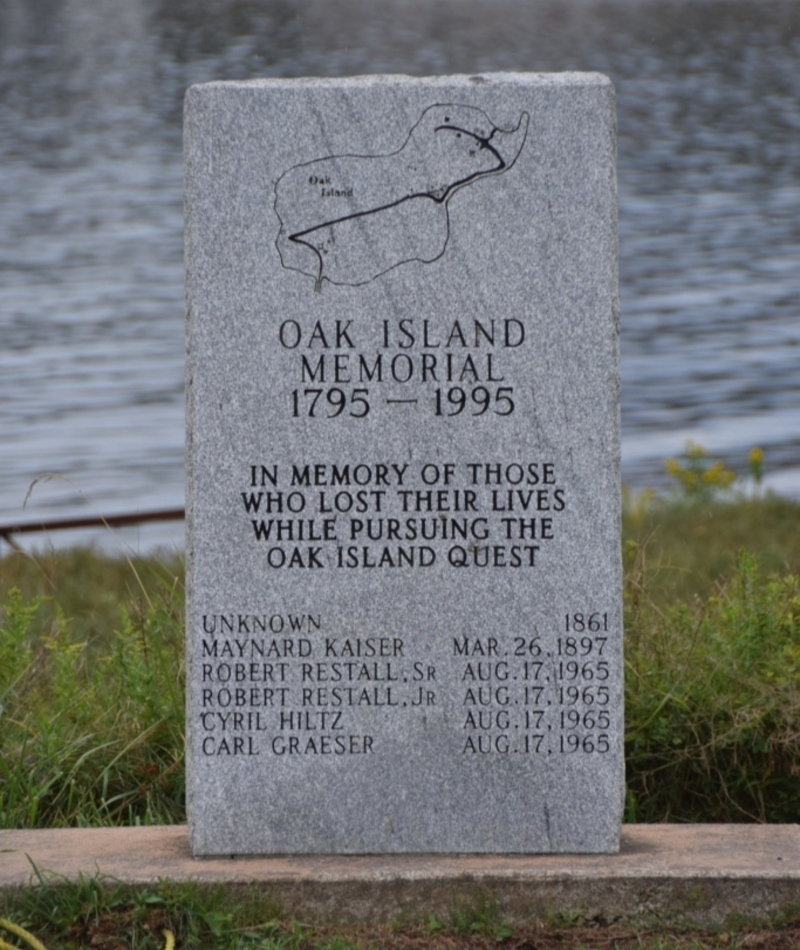
The son inhaled the same toxic fumes that caused his father to plummet down the pit. Once he did, Restall Jr. fell to the same tragic fate.
More Death
Two workers in the area, Karl Graeser and Cyril Hiltz, hurriedly went to the pit and tried to climb down to rescue the Restall men. However, they also inhaled the carbon monoxide and met their deaths down the pit.

This was the island’s biggest disaster: four deaths in one day. The Money Pit, it seems, was working its way up to that number prescribed in the myths: seven deaths before the treasure would be revealed.
The Next Explorer
The same year the Restall men and their workers fell to their deaths, Robert Dunfield arrived on the island. We guess he wasn't deterred by the odd deaths and the rumors that ghosts were protecting the treasure because he brought with him an army of cranes, bulldozers, and heavy machinery to dig the pit further.
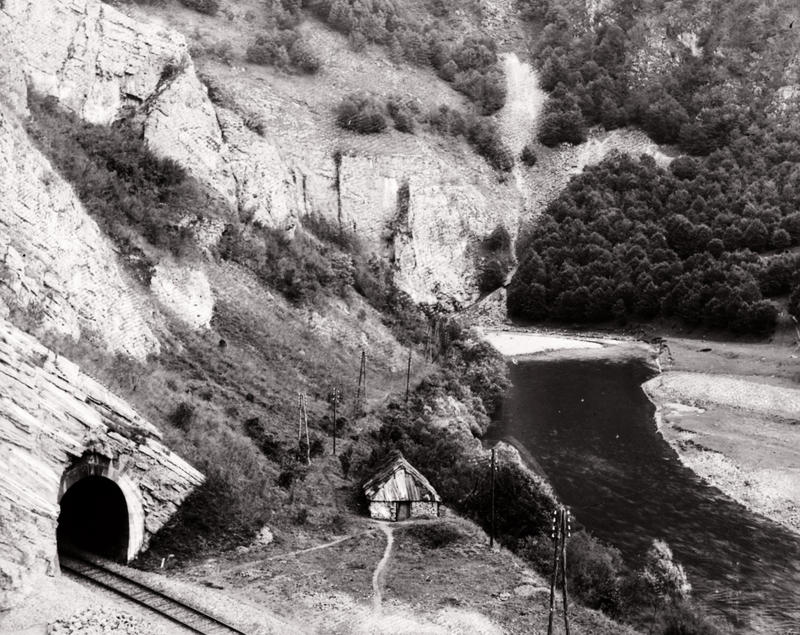
He tunneled approximately 140 feet down, reaching the thick limestone layer that was previously discovered.
More Stranger Clues
Another man by the name of Daniel C. Blankenship also went to the Money Pit to dig in 1965. His efforts paid off when he found a hand-wrought nail, a washer, and a stone-shaped heart 60 feet down. While these odd discoveries didn’t make a whole lot of sense in isolation, they formed part of a puzzle that was slowly coming together.

One that would surely be answered in the future if only enough clues could be found.
The Triton Alliance
In the late 1960s, a group called the Triton Alliance was created to continue the quest for the elusive treasure. The team used heavy machinery in the hope of making significant findings and, most importantly, unearthing the treasure.

Aside from recovering some artifacts, such as a 300-year-old pair of wrought-iron scissors, the team’s extensive search did not reveal much of anything useful. However, the crew of hardened explorers refused to back down from their tough mission.
A Brilliant Idea
In 1976, the Triton Alliance came up with a brilliant idea on what they can do to try and reach a breakthrough. At this point, there was already new technology available that did not exist when previous expeditions tried to solve the case.
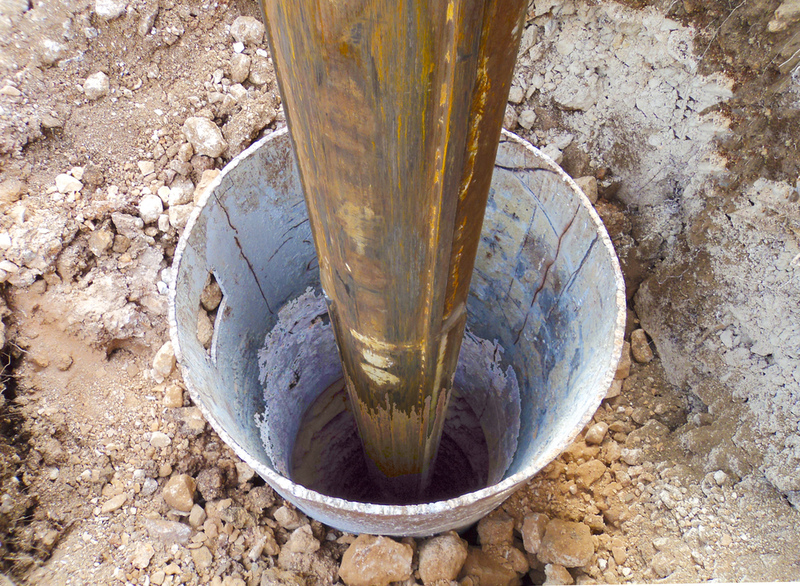
They sunk a Borehole 10-X steel tube into the ground. Its purpose was to lower a camera into the pit. This paid off, and the hardworking explorers were rewarded with some pretty amazing things.
Intriguing Discoveries
The camera was lowered down into the cavity. What the Triton Alliance saw, shocked them. The images from the camera revealed an array of objects and tools suspended in the water. Leather shoes were discovered along with, to their horror, a severed human hand.

The Triton Alliance members were more thrilled when they saw three chests that looked a whole lot like the ones people like to bury treasures in. It was a truly overwhelming day for the team. While they were excited about the chests, it was hard not to be distracted by the human remains.
The End of the Search
After seeing shocking images from below the shaft, the Triton Alliance sent divers to recover the objects, but they were in for yet another surprise: none of the items they’d seen on the camera could be found. The current in the pit was so strong that it caused sand and dirt to be constantly churning, making visibility a nightmare.

The divers were basically blind in their mission to find the items. They eventually gave up… and not a moment too soon.
Another Dead End
Just minutes after the divers decided to give up and go out, something terrible happened. The shaft fell apart. The group had no choice but to abandon their excavation.
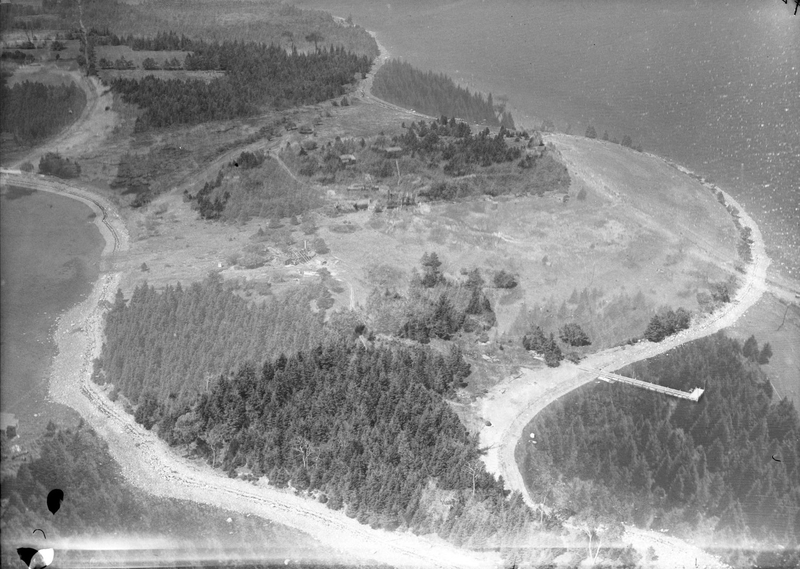
Not wanting to give up as they were keen to recover the intriguing items they had seen in the camera images, the group tried to dig up the shaft again, but just like many who have tried before them, eventually ran out of financial support.
Oak Island's Popularity
A decade after the Triton Alliance officially ended their quest for the buried treasure, Oak Island was starting to catch the interest of the general public. The mysterious island was featured in an episode of the 1979 TV show, "In Search Of… " The episode concerning the island earned the mystery a huge fan base, both locally and internationally.
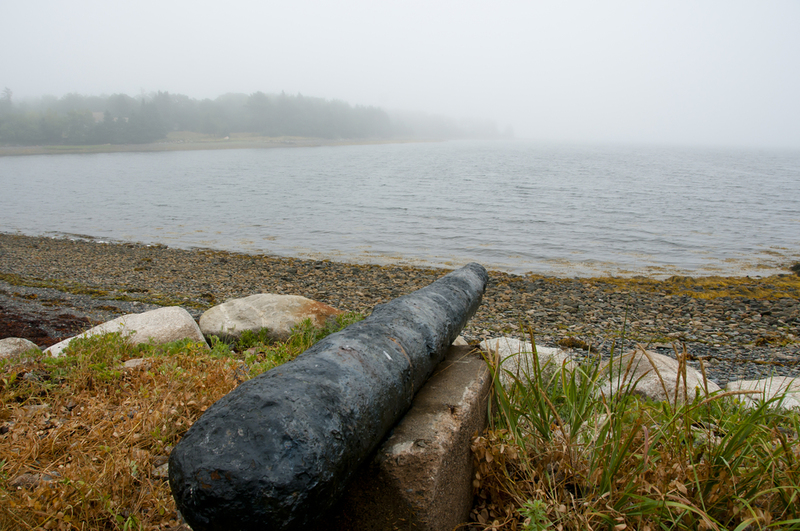
With the intriguing stories and shocking discoveries about the many attempts to crack the case, Oak Island was receiving public recognition. In fact, people of all walks of life were curious about the elusive treasure and the legends that surround it.
An Ownership Conflict
With a rumored amount of 2 million pounds buried on the island, it is not surprising that conflicts would arise. In 1983, the Triton Alliance and one of their members, Fred Nolan, battled over rights on certain parts of the island. The company sued Nolan over ownership of seven of the island’s lots.

Nolan was sued for damages that greatly affected Triton Alliance’s tourist business. His company appealed in 1989 but lost for the second time. As the legal battles took over, Oak Island fell silent for over a decade (1990 through 2005). Until the Lagina brothers finally came...
The Lagina Brothers
The treasure hunt journey of Triton Alliance in Oak Island was featured in a 1965 Reader’s Digest article, the same article that caught Rick Lagina’s interest when he was just 11 years old.

In 2005, the brothers saw an opportunity to enter Oak Island when they learned that a fraction of it was up for sale at around $7 million. They invested a fifty percent stake in a company called Oak Island Tours Inc. The determination to find the treasure they dreamed of as kids still lived on in their 50-years-old forms.
New Beginnings
As a fresh start for their Oak Island journey, the Lagina brothers integrated the modern technology earlier explorers hadn’t had access to. Rick and Marty were more than determined to get to work and investigate the island further. With the help of state-of-the-art technology, the brothers were able to search not just the fabled Money Pit, but also other unexplored parts of the island.

The flooding of the pit was no longer an obstacle as the lads had the technological means to create efficient solutions. To their surprise, their efforts revealed secrets and allies that were far from their expectations.
The Curse of Oak Island
When the History Channel learned about the hard work of the Lagina brothers in the Oak Island mystery, the company commissioned a TV show called "The Curse of Oak Island." Aside from catering to a bigger audience, the show also helped the siblings raise funds to keep their quest equipped with the necessary resources.

The show also gave the treasure search more meaning and credibility. With its increased popularity worldwide, a lot of people were waiting for answers.
Skilled and Prepared
Though they developed their burning desire to explore the Oak Island mystery at a young age, the Lagina brothers waited for a long time to pursue their treasure hunt. And with age and wisdom on their side, they came prepared.

Marty had extensive experience with gas wells and digging, and he shared his knowledge and skills with his brother, Rick. Marty had worked at a number of different gas wells and so had spent time with a variety of engineering experts. He was able to make use of these connections, enlisting them to serve as professional counsels.
Their First Find
One of the brothers’ first projects for their show, was to dig up a swamp so that they could search further than any explorer who had gone before them. It turned out the swamp revealed their first treasure: a Spanish copper coin dated to the 17th century. This provided evidence that people from Spain had visited the island before.
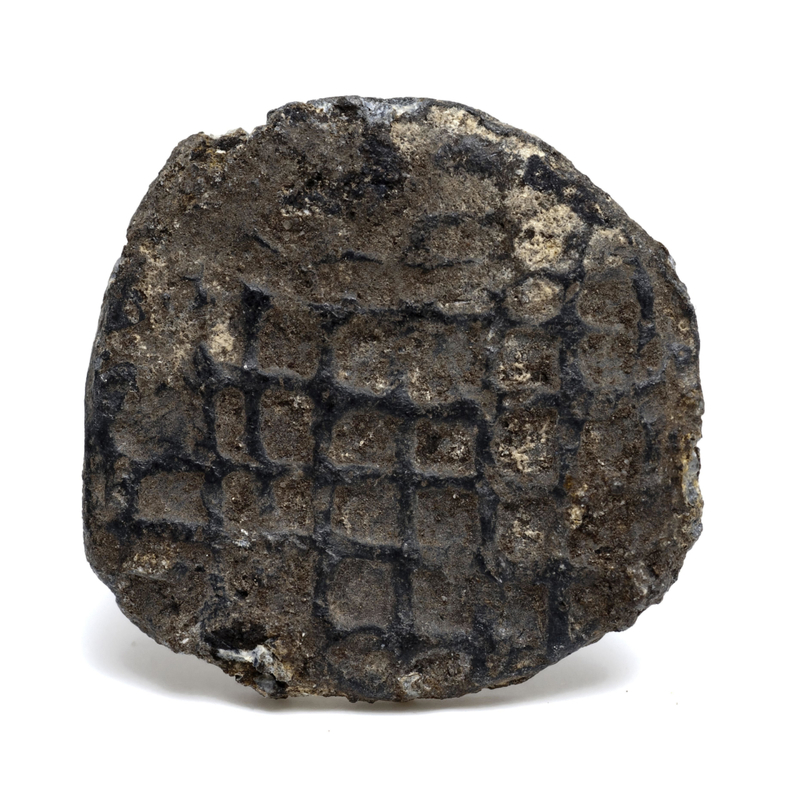
Various theories and speculations were made out of the significant pieces of evidence found. One such theory suggests that the hidden treasure belonged to King Solomon.
More Finds
The show enjoyed a successful first two seasons, but it was during its third season that the Lagina brothers made their most thrilling discoveries. With the help of experts who assisted them with sonar readings and in draining the Borehole 10-X, Rick and Marty eventually discovered the island’s greatest bounty so far.

They found a Roman sword and a Portuguese carving. Things got more interesting when they discovered proof that the Aztecs had explored the island in the past. Isn’t that cool?
Life’s a Treasure Hunt
In his fifties, Rick considered the Oak Island treasure journey to be an important continuation of a cherished childhood dream.

“There’s a story to be written up here. Treasure, perhaps, but it’s a truly wonderful story from a long time ago. Every day it feels like we’re turning a page of a really good book,” Rick said. Reflecting on their treasure hunt, he also added that “to me, life’s a treasure hunt. We’re all on one in our own different way, and we happen to be on a real one right now.”
The French Map
During the third installment of the show, the Lagina brothers were gifted a French map from the year 1647. The map of Oak Island was illustrated in French and had some valuable facts contained within its contours. The map indicated that an anchor, a valve, and a hatch, were in place to help explorers on their quest to find the island’s treasure.

The map also dropped hints that the alleged treasure may have come from Africa. These symbols and clues were very helpful for the Lagina brothers, giving them vital clues the past explorers had lacked.
A Bit of the Titanic
Believe it or not, the Oak Island mystery even has a connection to the historical Titanic tragedy. There was speculation that Vincent Astor contributed an incredible amount of money to the excavation of Oak Island. It was his strong conviction that led him to donate a massive amount of money as he was said to have believed that a monumental treasure really exists on the island.

Astor even hoped that they might recover the Ark of Covenant. The wealthy businessman had inherited his fortune from his famous father, John Jacob Astor IV, who died during the Titanic tragedy.
Barry Fell
One of the many skilled and smart explorers of the Oak Island mystery was a man named Barry Fell (a terrifying name, considering the fates that befell many of the explorers who tempted the island).

Fell was a Harvard zoologist by trade and an archaeologist who claimed that the carvings discovered on Oak Island originated from the Coptic Christians of North Africa who may have visited the site during ancient times.
Saving Lives
More than just pure entertainment, the History Channel’s, "The Curse of Oak Island," made a big difference in the life of at least one of its followers. A longtime fan was thrilled when his house was, in the strangest of circumstances, saved by the show.

The Texas native ordered an Aqua Dam (just like the one used on the show) to save his property from the harsh challenges of the flood that came in the wake of Hurricane Harvey. He must’ve been the only Oak Island fan in the area because his house was the only one on the block that was saved.
A Bunch of Tar
One lady who thinks she’s solved the mystery is Joy Steele. She claims that there are, in fact, more pits than the famous Money Pit to be found there. These pits, she claimed, were nothing but giant storage vessels for tar that were dug by the British Army to aid in the construction and maintenance of their ships.
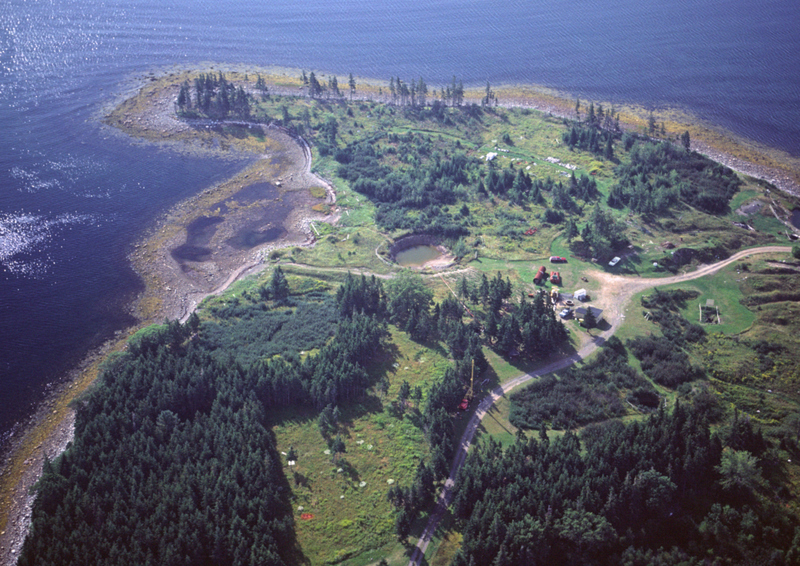
To add legitimacy to her theory, Joy highlighted various shipbuilding sites in North Carolina that look similar to the Oak Island setup and were famous tar storage pits. Could it be that the answer is nothing more than tar? We’ll have to wait for new explorers to try and find the final answer.